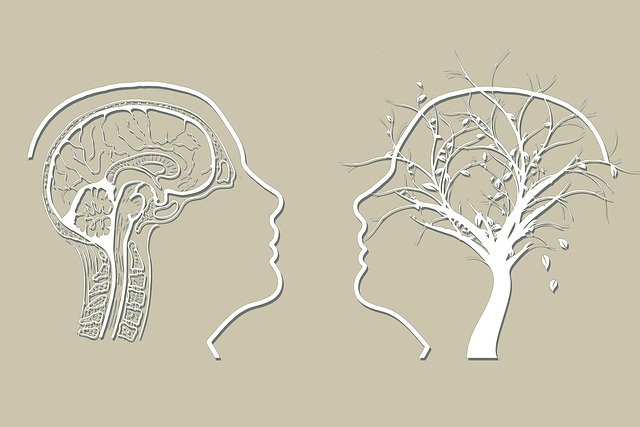Positive thinking, combined with Wheat Ridge Adjustment Disorder Therapy, is a powerful tool for enhancing mental well-being by reframing negative experiences and focusing on personal strengths. Effective exercises tailored to this therapy include guided meditations, gratitude journaling, and cognitive reframing, which transform thought patterns over time, boosting resilience and managing anxiety and stress. Integrating positive thinking into traditional therapy empowers patients to take control of their mental health, improve self-esteem, and significantly improve daily life by fostering calm amidst disorder.
Positive thinking exercises are powerful tools for enhancing mental well-being, especially in managing conditions like Wheat Ridge Adjustment Disorder Therapy. This article explores the transformative power of positive thinking and provides practical strategies for implementation. We delve into the science behind its impact on mental health and offer insights on designing effective exercises tailored to individual needs. Additionally, we discuss integrating these practices into therapeutic routines, highlighting their potential to foster resilience and promote healing in the context of Wheat Ridge Adjustment Disorder Therapy.
- Understanding Positive Thinking and Its Impact on Mental Health
- Designing Effective Positive Thinking Exercises
- Integrating Positive Thinking into Wheat Ridge Adjustment Disorder Therapy
Understanding Positive Thinking and Its Impact on Mental Health

Positive thinking is a powerful tool that can significantly influence mental health and overall well-being. It involves cultivating optimistic thoughts, reframing negative experiences, and focusing on personal strengths and accomplishments. This practice goes hand in hand with Wheat Ridge Adjustment Disorder Therapy, where individuals learn to manage their thoughts and emotions during times of transition or stress. By embracing positive thinking, people can enhance their resilience, improve mood, and reduce symptoms of anxiety and depression.
Self-awareness exercises and the development of a self-care routine are essential components in fostering positive thinking. Through introspection, one can identify negative thought patterns and replace them with more constructive ones. Self-care practices, such as regular exercise, mindfulness meditation, and engaging in enjoyable activities, contribute to better mental health. These techniques enable individuals to develop a deeper sense of self, improve their ability to cope with challenges, and ultimately lead happier, more fulfilling lives.
Designing Effective Positive Thinking Exercises

Designing Effective Positive Thinking Exercises plays a pivotal role in Wheat Ridge Adjustment Disorder Therapy. These exercises are tailored to help individuals cultivate a more optimistic mindset and enhance their overall well-being. The key to success lies in creating activities that foster resilience building, a vital component in managing anxiety relief and stress reduction methods. Incorporate real-life scenarios and practical challenges into the routine to promote active engagement.
When crafting these exercises, consider using a mix of techniques such as guided meditations focusing on positive affirmations, gratitude journaling, and cognitive reframing activities. These strategies not only encourage positive thinking but also offer effective tools for managing symptoms associated with adjustment disorders. By regularly practicing these exercises, individuals can gradually transform their thought patterns, leading to improved mental fortitude and enhanced coping mechanisms.
Integrating Positive Thinking into Wheat Ridge Adjustment Disorder Therapy

Integrating positive thinking into Wheat Ridge Adjustment Disorder Therapy offers a powerful tool for individuals navigating this challenge. By focusing on cultivating optimism and reframing negative thoughts, patients can develop resilience and enhance their overall well-being. Positive thinking exercises encourage self-reflection, fostering emotional intelligence and self-awareness—crucial aspects of personal growth. This approach complements traditional therapy methods by empowering individuals to take charge of their mental health and improve self-esteem through consistent practice.
Self-care practices, when combined with positive thinking, become more than mere activities; they become acts of self-preservation and love. By dedicating time for reflection, meditation, or engaging in hobbies that bring joy, patients can create a sense of calm amidst the disorder’s chaos. This holistic integration supports not only emotional intelligence but also strengthens the individual’s ability to cope with stress, ultimately leading to profound improvements in their daily lives.
Positive thinking exercises, when integrated into treatments like Wheat Ridge Adjustment Disorder therapy, can significantly enhance mental well-being. By designing effective exercises tailored to individual needs and incorporating them into established therapeutic practices, practitioners can empower individuals to cultivate a more optimistic outlook. This holistic approach not only addresses symptoms but also fosters resilience, ultimately leading to improved quality of life for those managing adjustment disorders.














